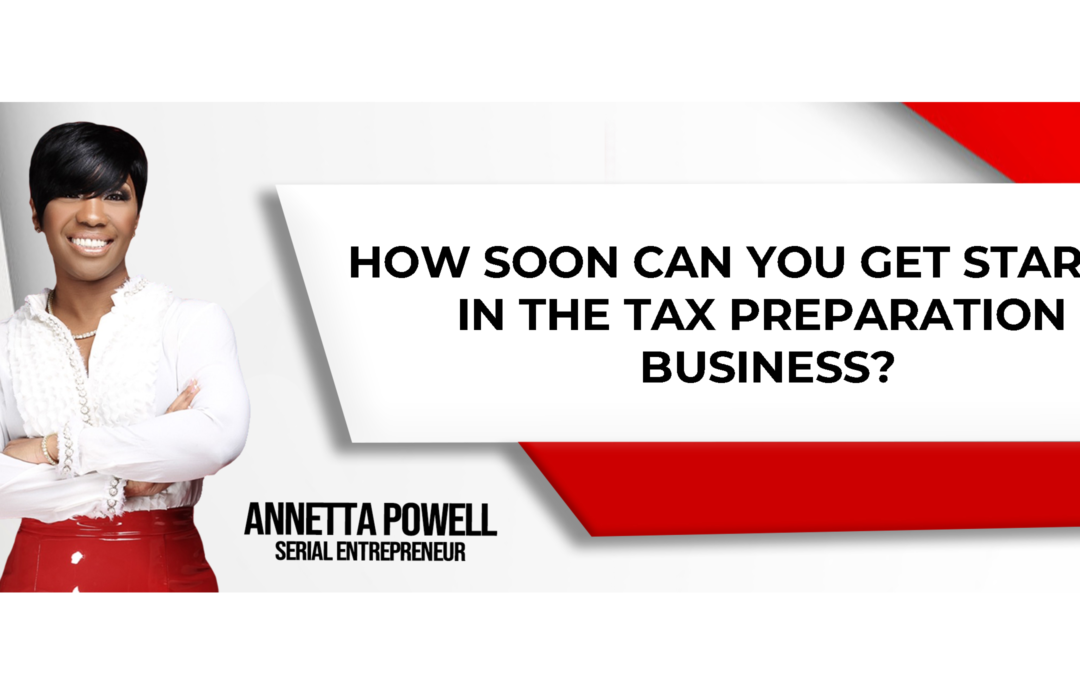Most tax preparers discover their interest lies in assisting people with tax-related concerns and going above and beyond to ensure that their clients have the best possible tax solution. This ambition usually leads these professionals to start their personal tax firms. How soon someone can start in the tax preparation business depends on acquiring the essential skills and required credentials. As mentioned below, a specific set of requirements needs to be fulfilled before getting into tax preparation.
However, as you go along these, you will realize that the process is fairly straightforward and does not require a lot of investment. You can get started as soon as you have these sorted!

Skillset
Successful tax preparers have a distinct set of abilities. Even if they aren’t one of your strengths right now, you can always develop them. Learn to pay close attention to the details. A mere decimal point or zero might result in considerable expenditures or fees, so having a keen eye for detail is essential in this role. Although most tax preparation business software includes tax equations, knowing how to compute simple numbers will save you time filing your taxes.
You must deal with several clients simultaneously as a tax preparer, so knowing how to multitask will help you succeed. The best tax preparers can communicate with clients transparently and openly. It’s therefore critical to hone your interpersonal abilities, which can lead to repeat business.
Field Knowledge
Before you enter the field, you must first study what this business entails. This knowledge may take the form of a certification in some cases, but it is not required. Most tax returns may be done in approximately 25 minutes using appropriate software. The preparer just needs a basic level of training and then the ability to simply follow the software’s step-by-step instructions.
Registration
Once you have acquired the field knowledge and skills, register to establish yourself as a self-employed tax preparer. To begin, register your company with your state. Then simply apply for your PTIN online. A PTIN, or Preparer Tax Identification Number, is necessary for anyone who charges a fee for tax return preparation services.
Next, obtain an EIN (Employer Identification Number). The IRS mandates that firms that employ people or function as a corporation or partnership acquire an EIN.
While not essential, here are also a few tips that can help you get organized and start your business more efficiently:
- Open a bank account for your business. Separating personal assets from the assets of your firm is vital for personal asset protection. It also simplifies accounting and tax preparation.
- Get a separate credit card for the business. Separating business and personal expenses will have to keep track of the finances.
- Get a certification of occupancy (CO) if you plan to run the business out of an office.
Pricing
When pricing your services, you should factor in your overhead expenses, the level of experience and training you have obtained, and competitor charges. You cannot condition the price of your services on the amount of tax refund the client receives. It’s not only unlawful, but it’s also a bad business practice.
If you’re just starting out and want to acquire market share, charging a lower price will help you attract customers. However, make sure you’re not undercutting yourself too much. Before deciding on your fees, ensure you evaluate all of your expenses. Tax preparers who work from home have lesser overhead than those who work out of an office, allowing them to charge lower costs.
Last but not least, obtain estimates from your competitors or have family and friends do likewise. Make sure you’re aware of your local market and that your pricing is competitive with other tax preparation businesses.
After you’ve identified a fair rate for your context, consider whether you want to charge an hourly rate or have a fixed fee for the services. Both have their advantages and disadvantages. It depends on your service, brand, and business goals.
Protect Yourself
Like any other profession, tax preparers that services the public must ensure that they are covered in the event of an unanticipated obligation. A crucial part of setting up this business is that you acquire insurance coverage to protect the contents of your workspace, whether you work remotely or lease a workplace.
Getting the Word Out About Your Tax Preparation Business
Creating awareness is the final step before you inaugurate your tax preparation business. You can create a website to gain potential clients. Nearly everybody looks for tax preparation services on the internet, so making sure your name is visible to those who need it is critical. You can also use social media platforms like Facebook and LinkedIn to engage with your clientele.
Remember that the service you offer is mainly dependent on consumer relationships and trust. Once you can satisfy your first set of clients, word of mouth, also known as viral marketing, will handle the rest!


Recent Comments